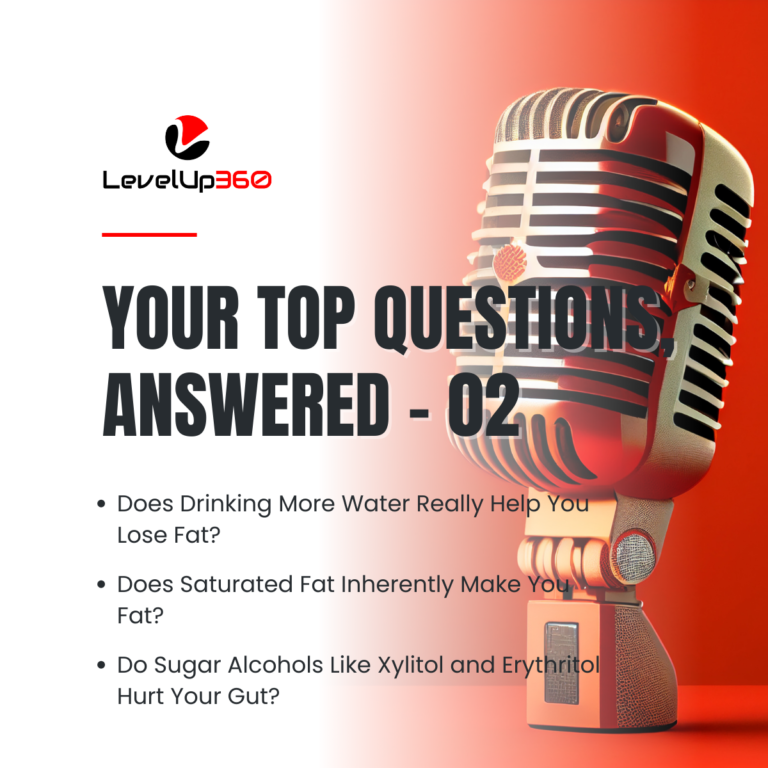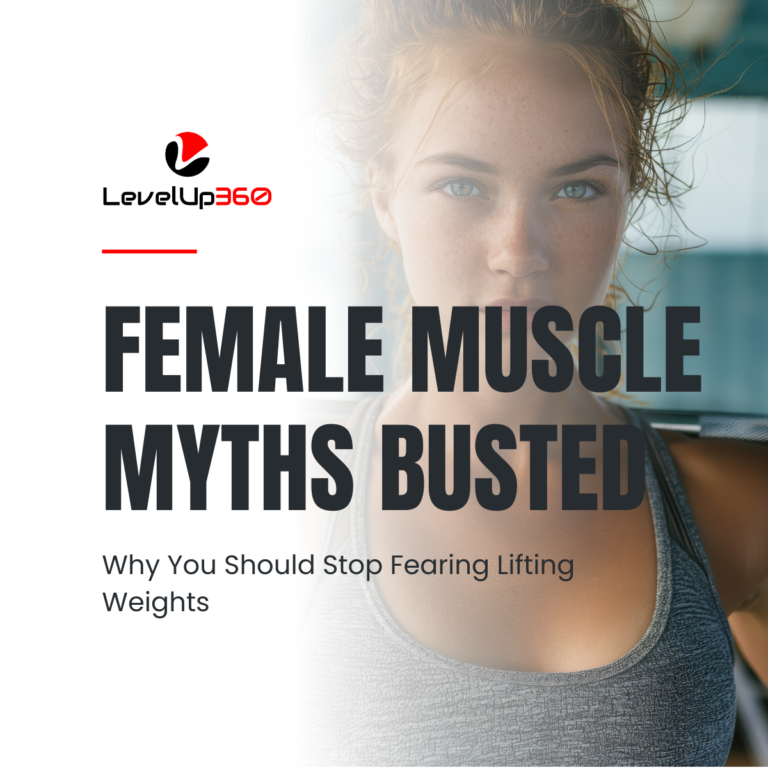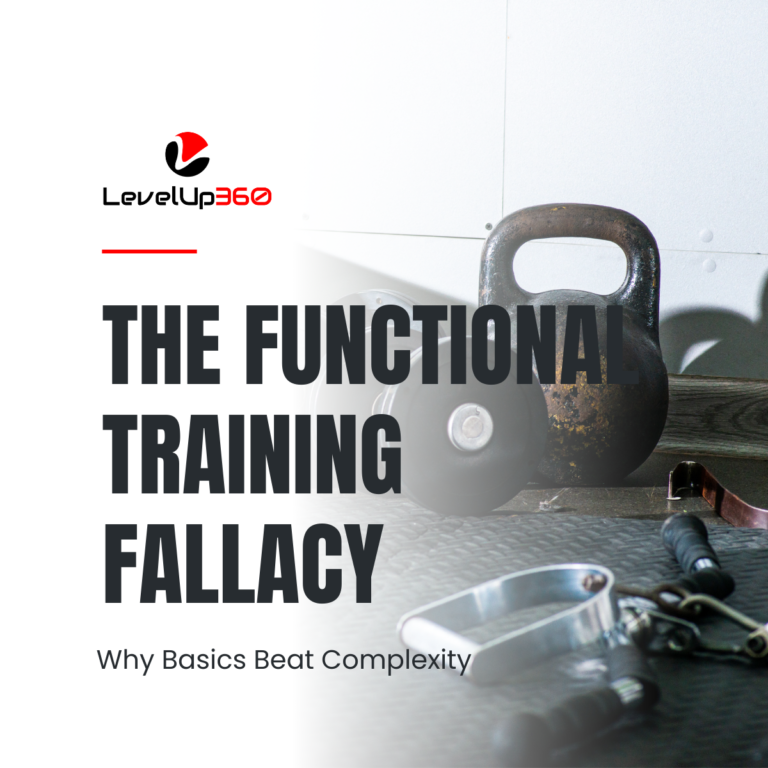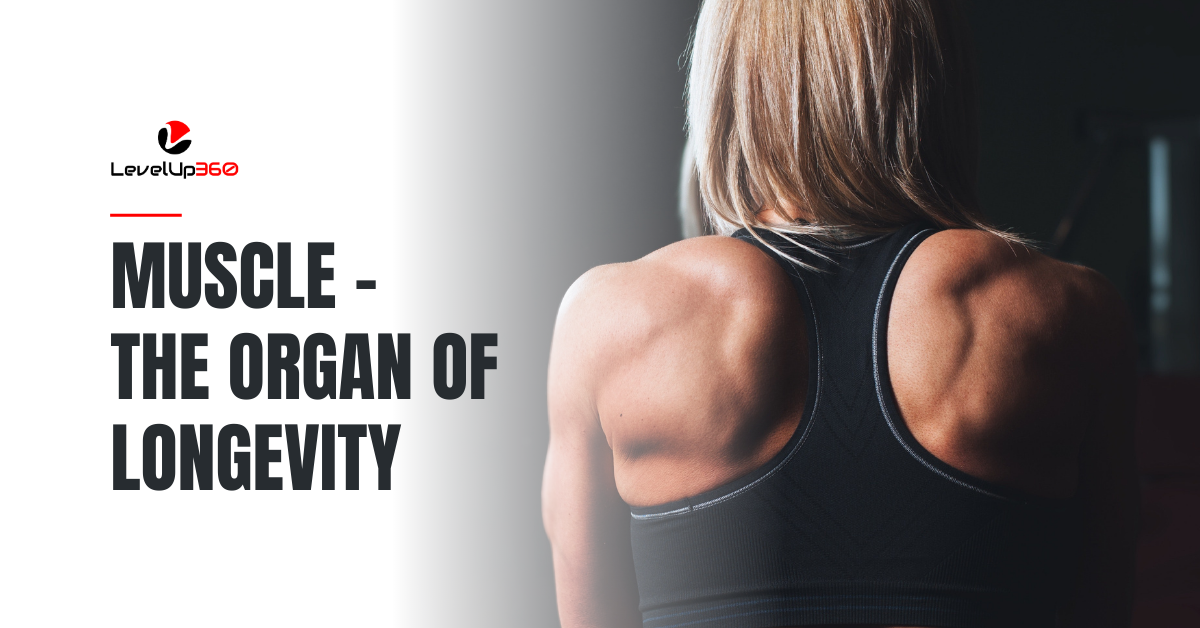
Muscle is often referred to as the “organ of longevity” due to its crucial role in maintaining overall health and preventing age-related diseases. As we age, our muscles tend to weaken and lose mass, which can lead to various health problems.
In this article, we will explore the reasons why muscle is so important for longevity and how we can maintain muscle health as we age.
As some studies have found, when people lose weight, it actually might increase their risk of a cardiovascular event, and that perplexed scientists for a long time.
“How could that be? They're losing fat. How could losing fat increase their risk of a cardiovascular event?”
The answer is simple, If that weight loss included a significant loss of lean muscle tissue, that could increase their risk of having a heart attack.
“Most health issues confronting adults are not a result of having ‘too much fat’, but having ‘too little muscle”
Dr. Gabrielle Lyon
Muscle mass is strongly associated with longevity
Studies have shown that muscle mass is strongly associated with longevity. In fact, one study published in the American Journal of Medicine found that muscle mass was a better predictor of mortality than body mass index (BMI).
The study followed 3,659 men and women over the age of 55 for 12 years and found that those with the highest muscle mass had the lowest mortality rates.
The reason for this association is thought to be due to the fact that muscle is a highly metabolically active tissue. This means that it burns a lot of energy, even when we are at rest. As a result, having a higher muscle mass can help to increase our metabolism, which in turn can help to prevent obesity and other age-related diseases.
Also, muscle myokines – a group of proteins that are produced by skeletal muscles during exercise – have been found to have numerous beneficial effects on overall health, including reducing inflammation, improving insulin sensitivity, and promoting the growth of new blood vessels.
Loss of muscle tissue is a better predictor of a future cardiovascular event
A fascinating new study (“Changes in body composition and future cardiovascular events: a longitudinal community-based study“), published in January 2023, found that the loss of muscle tissue is a better predictor of a future cardiovascular event than fat mass gain over a 5 year period of time.
The study found that preventing muscle loss is even more important than preventing fat gain as there is a greater associated increased risk of having a heart attack or cardiovascular event with a 5-year loss of muscle mass when compared to the associated increased risk with gain in fat mass over the same period.
The median age of the study subjects was 58 years old. On the low end, they were 50 years old, on the high end, they were 80 years old.
The study subjects were tracked initially in 2013, where they got some baseline demographic data, anthropometric data, free fat mass, and body fat percentage. They were tracked again in 2015 and 2016, and then the follow-up was between 2021 and 2022 to see if they had a heart attack.
The scientists said that to the best of their knowledge, this is the first study to explore the associations of changes in body composition and cardiovascular events, by separating fat mass and free fat mass, instead of using body mass index (BMI).
According to the scientists carrying out the study, BMI is not accurate, so we should be looking at lean tissue, fat-free mass muscle tissue, and looking at body fat percentage, not just BMI.
The people that did resistance training, exercised regularly, ate sufficient proteins to support muscle protein synthesis, and didn’t lose more than 8% muscle tissue, still had an increased risk of developing a heart attack, but it was much lower compared to those who did lose more than 8% of their free fat mass or muscle tissue over the course of the study period.
Higher risk of cardiovascular events in muscle tissue loss
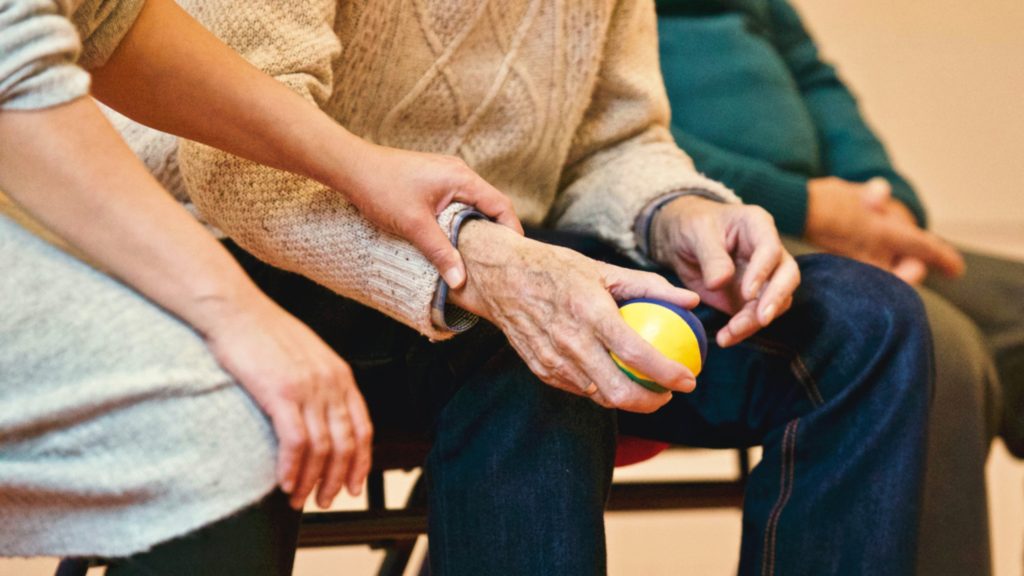
What the scientists found in these thousand subjects that were tracked over the course of five years was:
- Compared with participants with stable fat mass percentages, those with a fat gain of more than 2% over a five-year period had an increased risk for a future cardiovascular event and a hazard ratio of 2.7.
- In contrast, people who lost more than 8% of their muscle tissue over the course of a 5-year period were associated with a higher risk of cardiovascular events, and the hazard ratio was 3.8.
“More importantly, it has been demonstrated that total muscle mass peaks at the age of 24 years old. Afterward, about 10% of muscle loss occurs between the years 24 and 50.
However, between the years 50 and 80, an additional 30% loss occurs”.
We lose muscle at a certain rate as we age (from as early as our late twenties if we are not active), but a big change in the rate of muscle loss occurs between 50 and 80.
A greater increased risk when it comes to having a heart attack for losing muscle compared to gaining fat

Another recent study conducted in South Korea, involving 3,000,000 subjects found that:
“Each 1kg/m2 increase in the 2-year Fat Mass index change was associated with an elevated risk of cardiovascular events, whereas each 1kg/m2 increase in the Fat-Free Mass index change was associated with a reduced risk of cardiovascular events, which was consistent with our study”.
They found that increases in lean fat-free mass muscle tissue were associated with reduced cardiovascular events, and they also find that increases in body mass, presumably from increases in fat, were also associated with increased risk for cardiovascular events.
“We have evidence that corroborates here, and we know now that there is a greater increased risk when it comes to having a heart attack for losing muscle compared to gaining fat”.
There’s currently a whole phenomenon known as Osteosarcopenic Obesity (OSO), where people gain fat, particularly visceral fat, and lose bone and muscle at the same time.
And this is very important because when trying to lose weight, most people will go on crash diets, will cut calories drastically, will do 3,4, and 5 days fast all the time, and will lose a significant amount of muscle mass.
The main takeaway
The main takeaway here is, everyone should engage in some form of resistance training for overall health and longevity and, as we get older, we should focus even more on resistance training.
Cardio is great for overall health, but a lot of people do cardio at the expense of not having time or energy to do resistance training.
Finding a balance between resistance training and cardio – that is doing cardio in a way that is not detrimental to muscle health – could be the key to optimising our health at any age and improving our quality of life as we get older.
Recommended reading
Recommended reading
More about "Resistance Training"
We will be delving into ways to promote muscle health and the benefits of resistance training for overall health and longevity. We will also look at general health guidelines and more.
You may want to check out related articles about Muscle and Resistance Training:
More about "Resistance Training"
We will be delving into ways to promote muscle health and the benefits of resistance training for overall health and longevity. We will also look at general health guidelines and more.
You may want to check out related articles about Muscle and Resistance Training:
Additional Resources
Feeling in control of your health
If you are interested in improving your health and wellness, check out other resources such as Our Blog, Free Resources and/or join our private Body-Mind Transformation Secrets Community on Facebook, and The 360 Transformation Blueprint Podcast on Spotify and go on an even deeper dive with me to uncover how to succeed in your health and wellness goals.
You may also be interested in our Sleep Secrets Cheat Sheet. It is a great resource with strategies to fix and optimize your sleep which is crucial to succeeding in your health and wellness goals.



